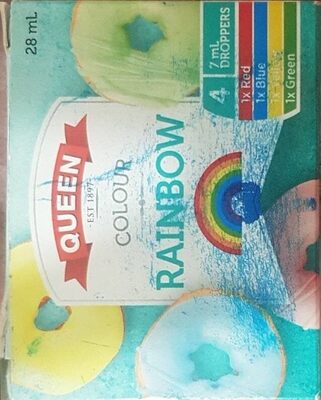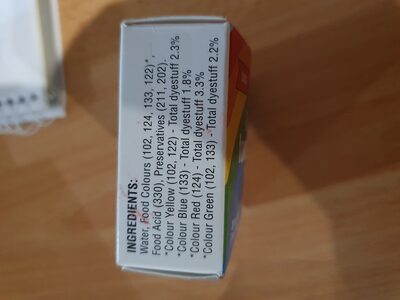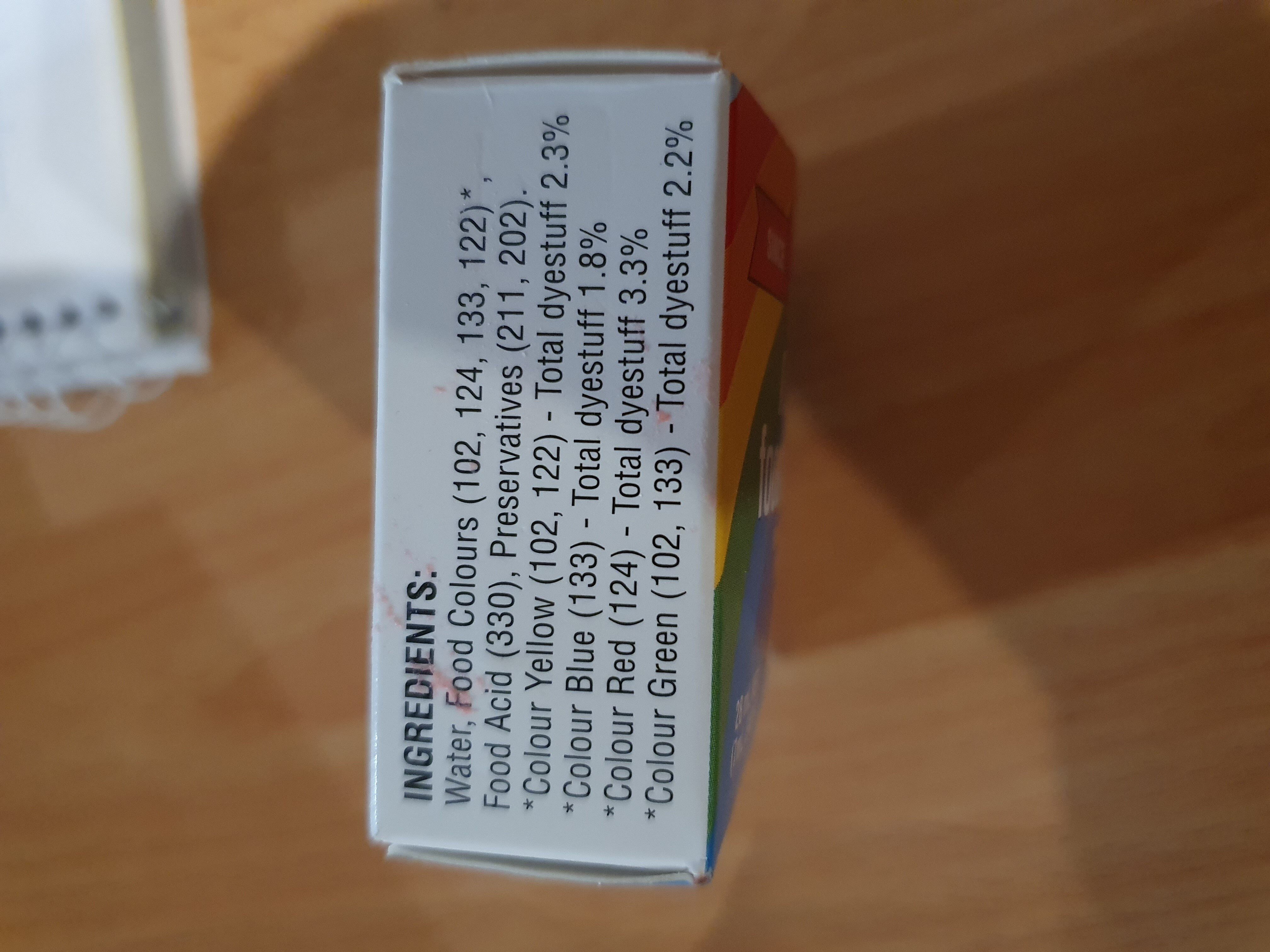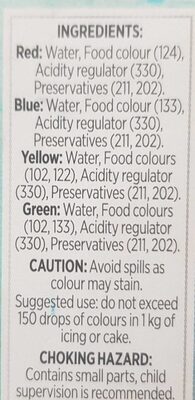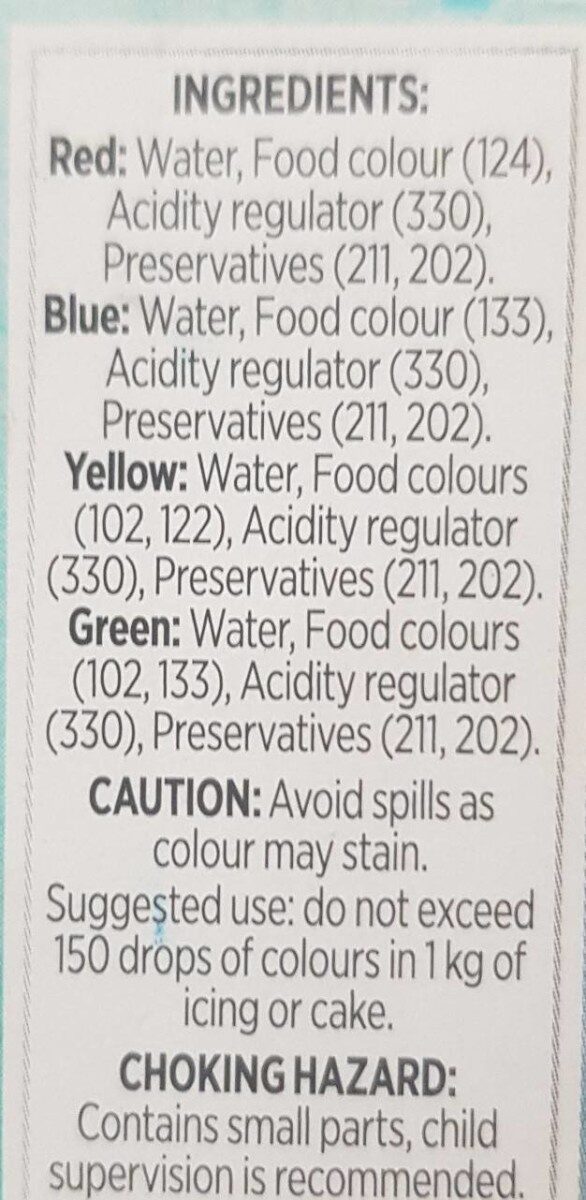Colour Rainbow Food Colouring - Queen
This product page is not complete. You can help to complete it by editing it and adding more data from the photos we have, or by taking more photos using the app for Android or iPhone/iPad. Thank you!
×
Barcode: 93641180
Brands: Queen
Categories: Food additives, Food colorings
Stores: Woolworths, Coles
Countries where sold: Australia, New Zealand
Matching with your preferences
Environment
Packaging
Transportation
Report a problem
Data sources
Product added on by inf
Last edit of product page on by lcmortensen.
Product page also edited by archanox, ecoscore-impact-estimator, kiliweb, segundo, yuka.sY2b0xO6T85zoF3NwEKvlmtoYsbbsAv4LS7VwWK55eilF4LCS45V_7rkEas.
If the data is incomplete or incorrect, you can complete or correct it by editing this page.
